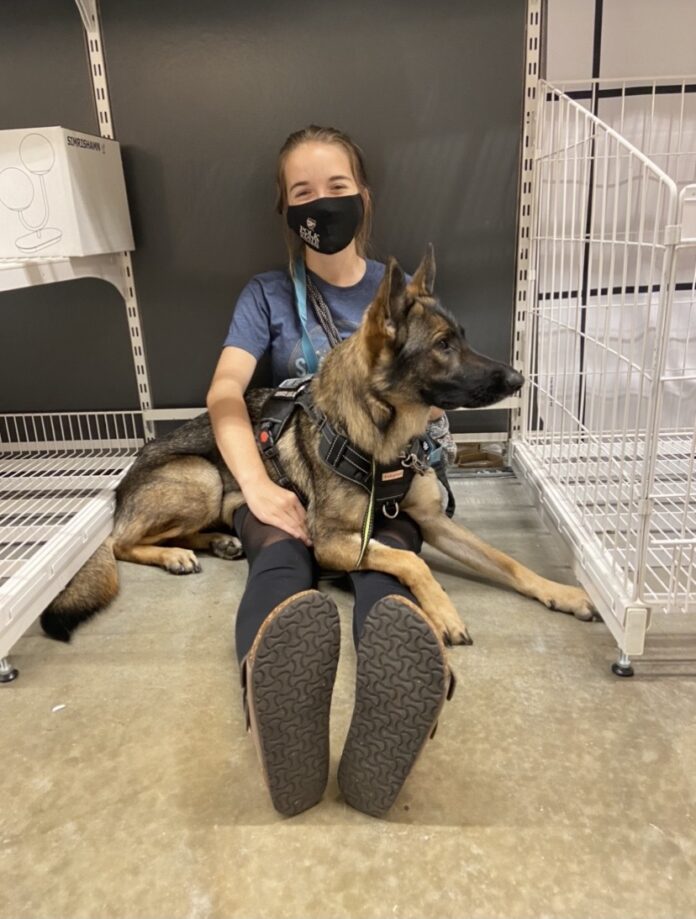
Emma Matzen
With a historic campus like Florida Southern, built by famous architect Frank Lloyd Wright, there are unfortunate restrictions when it comes to altering the campus’s infrastructure.
Unfortunately, renovating or altering the historical architecture on campus has to go through multiple boards of approval to be done, which has posed quite an issue for disabled students at Florida Southern College.
With face-to-face classes being the norm this school year, as opposed to most classes having the online Zoom option, it’s even harder for disabled students to get to their classes.
As of 2019, Associate Vice President for Student Support Dr. Marcie Pospichal stated that the student support office does what they can to “modify […] space[s] to be more accessible.”
However, two years later, this remains to be seen.
Student Andrew Thompson, Vice President of Young Adults As Self Advocates (a club dedicated to those who feel their accommodations are overlooked), is on the autism spectrum and says that at times, he feels like a second class citizen on campus.
“While administration has been able to make academic accommodations for some of our students, the lack of understanding of disabled people by some of the student body and the lack of education on the topic for abled people leads to an environment which harms people like me and makes our lives more challenging,” Thompson said.
Many areas on campus are inaccessible in terms of the lack of ramps, which causes wheelchair-bound students to have to take longer routes to get around campus.
Vanessa Hart, who uses a wheelchair, had to go to the Roux Library to get to a wheelchair-accessible bathroom, instead of using the bathroom at Chatlos due to the building’s lack of a wheelchair-accessible bathroom. Because of the structure of the school and the lack of ramps, Hart said it takes her about 30 minutes to get between the two buildings.
“I have a friend that has had a ton of issues regarding accessibility for her issues with mobility,” Chloe Eggert, a freshman, said. “She has to take such long routes around the school for lack of ramps, and she’s even been denied numerous accommodations that she was told she would be granted. It’s so hard for her to stay here, because people aren’t treating her fairly.”
Not only is campus accessibility an issue, but there seems to be a lack of education among abled students when it comes to disabilities, as well as service animals.
While emotional support animals (ESAs) are important to many students, there have been a few issues of ESAs not being properly trained. “I had someone’s ESA jump on me at Tutu’s before,” sophomore Emily Starling said.
Students have alleged that ESAs should know basic commands—like “sit,” “stay,” “down” and “leave it.” Some students, like Eggert, believe that ESAs should not be in the same vicinity as certified service animals.
“My service dog has been attacked before by untrained dogs in the same space as her, and with an untrained animal in her space, she may not be able to do her job properly,” Eggert said. “Service animals are medical equipment and that’s why they are allowed public access. ESA owners should be very observant regarding how their dog is behaving, especially if they have minimal training, both for the animal’s safety and the safety of other people.When untrained dogs make a scene, it reflects badly on service dog handlers and causes us insane access issues,” Chloe Eggert said.
Overall, it’s important that students on campus, specifically abled students, get educated on issues regarding disability, accessibility, and service animals.
Without being educated on these topics, students will not only be ignorant regarding these important issues, but may perpetuate these problems as well. Hopefully, the campus can make more strides to be more accessible and inclusive to disabled students in the future.
“We must remember that everyone is unique and valuable, including people with disabilities, and be willing to connect with and listen to people from all different walks of life,” Thompson said.







